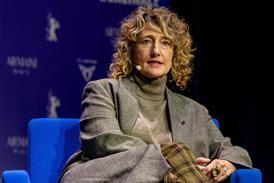What did it feel like to win the Palme d'Or'
It is a joy to get such a coveted award and I have a long history with Cannes because the first time I went there I was a student of the film school in Poland - it was the only festival then, and it still is in a certain sense.
How did you celebrate'
I did not. I went back to Paris. I came to Cannes in the afternoon and left at midnight.
How did it affect your career'
If it did, I don't know. It is a personal satisfaction.
Did it make it easier to attract funding for subsequent projects'
I don't think the Palme d'Or helped anybody in any way because it does not have any commercial impact and that is the only thing that matters in funding a film. It is not like the Oscar.
Where do you keep your Palme d'Or'
I keep it with a bunch of other awards on the shelf. It actually looks like a garage sale.
To whom would you give an all-time Palme d'Or'
Federico Fellini.
What have been the most important shifts in the industry during your career'
As you know, the whole industry depends on the studios that have evolved from single strong-willed individuals to a kind of committee with no particular direction.
How do you see the role of festivals changing'
I went for the first time to Cannes when I was a film school student and it was virtually the only festival spoken about. Now there are over 400 festivals, more than there are days in a year, so I don't think they mean anything now. They became so banal.
What are your hopes and fears for the future'
I have constantly heard about 'the crisis of cinema' - literally from the moment I graduated from film school until now. There is only evolution and new technologies and the way we put movies together, and the way it is shown to the public as with every other industry... it is nothing exceptional.



















No comments yet